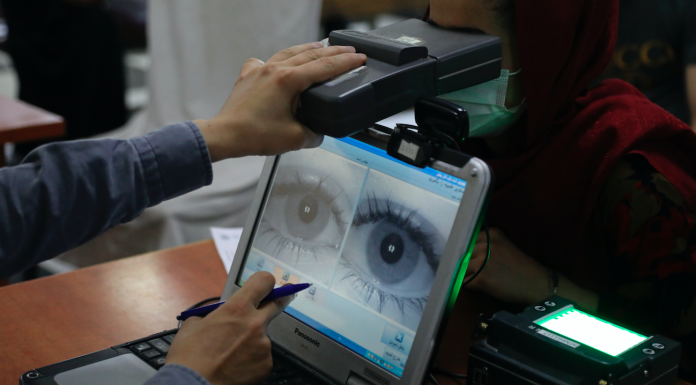(John Ransom, Headline USA) The IRS said that it will stop using facial recognition technology to identify taxpayers online after legislators in both parties expressed displeasure with the measure, said a statement by the tax-gathering agency.
“The IRS takes taxpayer privacy and security seriously, and we understand the concerns that have been raised,” said IRS Commissioner Chuck Rettig, noting that the agency would “transition away from the technology.”
“Everyone should feel comfortable with how their personal information is secured,” Rettig added, “and we are quickly pursuing short-term options that do not involve facial recognition.”
IRS Abandons Plans To Require Third-Party Facial Recognition https://t.co/j4Bm2CYpwm
— zerohedge (@zerohedge) February 8, 2022
Fourteen Republicans senators sent a letter to IRS commissioner Rettig last week expressing concern that the ID.me facial recognition technology that the agency uses raises “serious concerns about how ID.me may affect confidential taxpayer information and fundamental civil liberties.”
The GOP senators noted that the use of an independent third-party vendor makes the company immune from oversight under watchdog investigative tools such as the Freedom of Information Act that has stopped IRS abuses in the past.
“This is an agency that we’ve already gone to court over after they were caught targeting conservatives, and we put a court order into place to forbid this practice,” said Jay Sekulow, chief counsel of the American Center for Law and Justice, according to Just the News.
Earlier, the Biden administration tried to implement a plan that would have required banks to report annual transactions as low as $600 to the IRS in order to get “millionaires and billionaires” to pay their fair share of taxes, raising fears of the expansion of federal powers into a surveillance state.
“The Democrats’ plan to allow the IRS to spy on the bank accounts of nearly every person in this country, even those below the poverty line, should be deeply concerning to anyone who values privacy and economic inclusion,” South Carolina Republican Senator Tim Scott said in a statement to ABC News.

